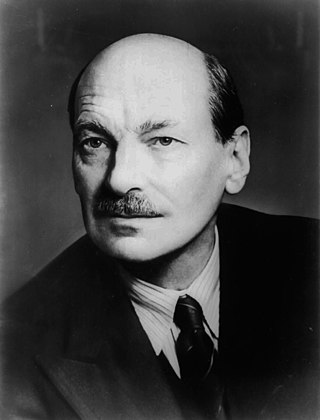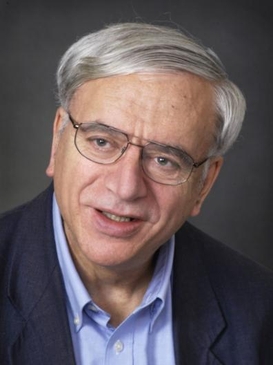For general overviews of British politics since 1945, see:
While coverage of British social history over the same period can be found below:

Leonard James Callaghan, Baron Callaghan of Cardiff, commonly known as Jim Callaghan, was a British statesman and Labour politician who was Prime Minister of the United Kingdom from 1976 to 1979 and Leader of the Labour Party from 1976 to 1980. Callaghan is the only person to have held all four Great Offices of State, having also served as Chancellor of the Exchequer from 1964 to 1967, Home Secretary from 1967 to 1970 and Foreign Secretary from 1974 to 1976. He was a Member of Parliament (MP) from 1945 to 1987.

The 1983 United Kingdom general election was held on Thursday 9 June 1983. It gave the Conservative Party under the leadership of Margaret Thatcher the most decisive election victory since that of the Labour Party in 1945, with a majority of 144 seats and the first of two consecutive landslide victories.

The Charter of the United Nations (UN) is the foundational treaty of the United Nations. It establishes the purposes, governing structure, and overall framework of the UN system, including its six principal organs: the Secretariat, the General Assembly, the Security Council, the Economic and Social Council, the International Court of Justice, and the Trusteeship Council.

The welfare state of the United Kingdom began to evolve in the 1900s and early 1910s, and comprises expenditures by the government of the United Kingdom of Great Britain and Northern Ireland intended to improve health, education, employment and social security. The British system has been classified as a liberal welfare state system.

The Shōwa era was the period of Japanese history corresponding to the reign of Emperor Shōwa from December 25, 1926, until his death on January 7, 1989. It was preceded by the Taishō era and succeeded by the Heisei era. The pre-1945 and post-war Shōwa periods are almost completely different states: the pre-1945 Shōwa era (1926–1945) concerns the Empire of Japan, and post-1945 Shōwa era (1945–1989) concerns the State of Japan.

The 1945 United Kingdom general election was a national election held on Thursday 5 July 1945, but polling in some constituencies was delayed by some days, and the counting of votes was delayed until 26 July to provide time for overseas votes to be brought to Britain. The governing Conservative Party sought to maintain its position in Parliament but faced challenges from public opinion about the future of the United Kingdom in the post-war period. Prime Minister Winston Churchill proposed to call for a general election in Parliament, which passed with a majority vote less than two months after the conclusion of the Second World War in Europe.

The 1886 United Kingdom general election took place from 1 to 27 July 1886, following the defeat of the Government of Ireland Bill 1886. It resulted in a major reversal of the results of the 1885 election as the Conservatives, led by Lord Salisbury, were joined in an electoral pact with the breakaway Unionist wing of the Liberals led by Lord Hartington and Joseph Chamberlain. The new Liberal Unionist party elected 77 members and gave the Conservatives their parliamentary majority, but did not join them in a formal coalition.
In the United Kingdom, the word liberalism can have any of several meanings. Scholars primarily use the term to refer to classical liberalism. The term can also mean economic liberalism, social liberalism or political liberalism. It can simply refer to the ideology and practises of the historic Liberal Party (1859–1988), or in the modern context, of the Liberal Democrats, a UK party formed after the original Liberal Party's demise.
This article presents a timeline of events in the history of the United Kingdom from 1930 AD until 1949 AD. For a narrative explaining the overall developments, see the related History of the British Isles. For narratives about this time period, see Interwar Britain, United Kingdom home front during World War II, Military History of the United Kingdom during World War II, Post-war Britain (1945–1979), Social history of post-war Britain (1945–1979),
This article presents a timeline of events in the history of the United Kingdom from 1950 until 1969. For a narrative explaining the overall developments, see the related history of the British Isles. For narratives about this time period, see Post-war Britain (1945–1979), Social history of post-war Britain (1945–1979),
This article presents a timeline of events in the history of the United Kingdom from 1970 until 1989. For a narrative explaining the overall developments, see the related history of the British Isles. For narratives about this time period, see Post-war Britain (1945–1979), Social history of post-war Britain (1945–1979), Political history of the United Kingdom (1979–present) and Social history of the United Kingdom (1979–present)
The post-war consensus, sometimes called the post-war compromise, was the economic order and social model of which the major political parties in post-war Britain shared a consensus supporting view, from the end of World War II in 1945 to the late-1970s. It ended during the governance of Conservative Party leader Margaret Thatcher. The consensus tolerated or encouraged nationalisation, strong trade unions, heavy regulation, high taxes, and an extensive welfare state.

A post-war or postwar period is the interval immediately following the end of a war. The term usually refers to a varying period of time after World War II, which ended in 1945. A post-war period can become an interwar period or interbellum, when a war between the same parties resumes at a later date. By contrast, a post-war period marks the cessation of armed conflict entirely.

Paul Addison, was a British historian known for his research on the political history of Britain during the Second World War and the post-war period. Addison was part of the first generation of academic historians to study the conflict and is most notable for The Road to 1945 (1975) which traced the origins of the post-war consensus into the wartime period.

The Labour Party governed the United Kingdom from 1974 to 1979. During this period, Harold Wilson and James Callaghan were successively appointed as Prime Minister by Queen Elizabeth II. The end of the Callaghan ministry was presaged by the Winter of Discontent, a period of serious industrial discontent. This was followed by the election of Conservative leader Margaret Thatcher in 1979.

The United Kingdom was one of the victors of the Second World War, but victory was costly in social and economic terms. Thus, the late 1940s was a time of austerity and economic restraint, which gave way to prosperity in the 1950s.

The Imperial State of Iran, officially the Imperial State of Persia until 1935, and commonly referred to as Pahlavi Iran, was the Iranian state under the rule of the Pahlavi dynasty. The Pahlavi dynasty was created in 1925 and lasted until 1979, when it was ousted as part of the Islamic Revolution, which ended Iran's continuous monarchy and established the current Islamic Republic of Iran.

The United Kingdom home front during World War II covers the political, social and economic history during 1939–1945.
This article lists the Labour Party's election results from the 1945 United Kingdom general election until 1955, including by-elections.